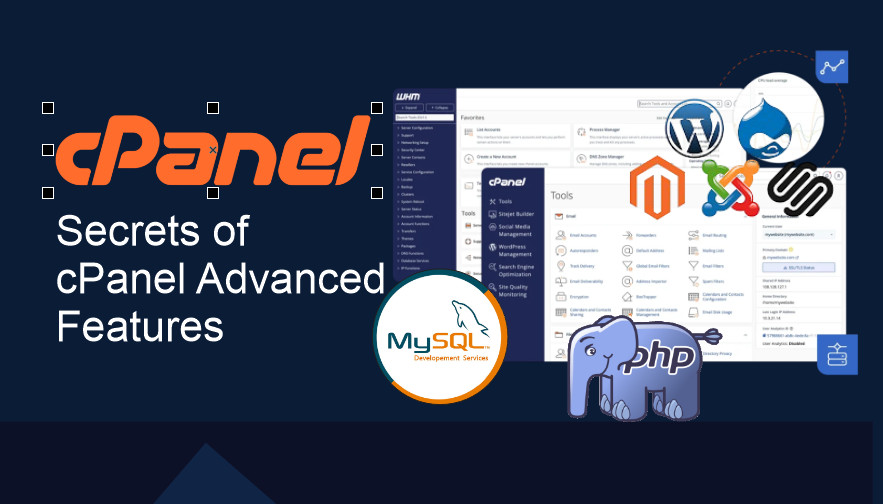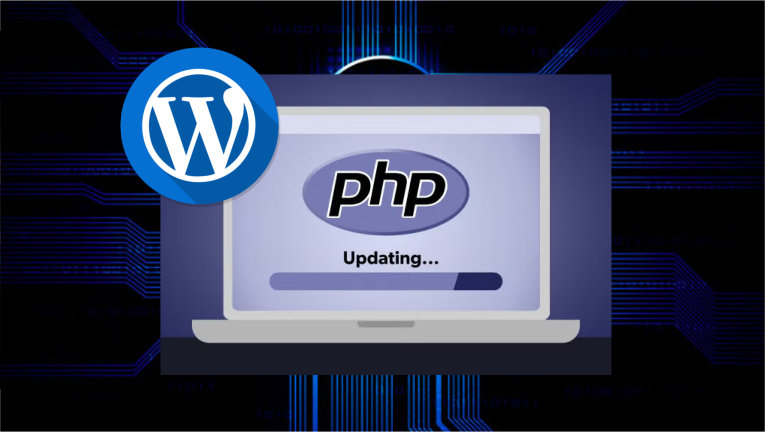Deciphering the Secrets of cPanel: Unlocking Advanced Features for Website Management
Deciphering the Secrets of cPanel Advanced Features for Website Management. In the world of web hosting, cPanel stands out as one of the most powerful and user-friendly control panels available. In the world of web hosting, cPanel stands out as one of the most powerful and user-friendly control panels available. With its graphical user interface (GUI) and automation tools, it simplifies complex hosting and server management tasks, making it accessible to website owners, administrators, and hosting providers alike. While cPanel is known for its ease of use, it also harbors several advanced features that can significantly improve your website management experience. In this article, we will delve deep into these “secrets” and show you how to use them effectively.
1. File Manager: The Heart of Website File Management
The File Manager in cPanel is an essential tool for managing all your website’s files and directories. It provides an easy-to-use interface for uploading, downloading, editing, and deleting files without the need for FTP software. Here are some lesser-known features of the File Manager:
- Code Editor: You can edit files directly in the File Manager using its built-in code editor, which supports syntax highlighting for common languages such as HTML, CSS, and PHP.
- File Compression: You can zip and unzip files directly from the File Manager, making it easier to transfer large amounts of data or backup your website files.
- File Permissions: Manage file and folder permissions from within the File Manager to ensure your website’s security is properly maintained.
By mastering the File Manager, you gain complete control over your website’s content, streamlining file management tasks and improving your workflow.
2. Backup and Restore: Safeguard Your Website
One of the most crucial tasks for any website owner is ensuring that regular backups are created. cPanel Backup features allow you to easily create backups of your entire website, including databases, configuration files, and email settings. You can choose to back up your site manually or schedule regular backups through the cPanel interface.
Key benefits include:
- Full or Partial Backups: You can create full backups (including your files, databases, and email forwarders) or partial backups, which allow you to back up only specific parts of your website.
- Restore Points: In the event of data loss or corruption, you can restore your website to a previous state with just a few clicks.
Regular backups ensure that your website can be quickly restored in case of a disaster, minimizing downtime and potential data loss.
3. Email Accounts: Create Custom Domains and Manage Emails
With cPanel’s Email Accounts feature, you can create custom email addresses using your domain (e.g., yourname@yourdomain.com), providing a professional appearance for your website and business. Beyond basic email creation, cPanel offers powerful tools for managing emails effectively.
- Email Forwarders: Automatically forward incoming emails from one address to another. For instance, you can forward emails from a specific inbox to your personal email.
- Autoresponders: Set up automated responses for incoming emails, useful for managing customer inquiries or out-of-office replies.
- Email Filters: Organize your inbox by creating custom filters to sort incoming emails based on specific criteria (e.g., sender, subject, or keywords).
These tools help streamline your communication and make your email management more efficient.
4. Security Features: Protect Your Website and Server
Security is a top priority for website owners, and cPanel’s security features offer several tools to help safeguard your site from malicious activity and unauthorized access. Some key features include:
- SSL/TLS Management: Secure your website by installing SSL certificates directly from cPanel. This ensures encrypted communication between your website and its visitors, improving both security and SEO.
- IP Blocker: Block specific IP addresses or entire ranges of IPs to prevent access to your server or website from malicious sources.
- Hotlink Protection: Prevent other websites from stealing your images or files by preventing them from linking directly to your website’s content.
By taking full advantage of cPanel’s security features, you can significantly reduce the risk of cyberattacks and keep your website secure.
5. Database Management: Streamlined Control with phpMyAdmin
For websites relying on databases (such as those powered by WordPress, Joomla, or Drupal), managing databases is a key task. phpMyAdmin in cPanel makes database management straightforward, even for beginners.
- Create and Modify Databases: You can create new databases and assign users and privileges, as well as modify existing databases with just a few clicks.
- Backup and Restore Databases: Easily back up your databases and restore them when needed, ensuring your website’s data remains intact.
- Database Optimization: Use phpMyAdmin to run optimization queries that improve your database’s performance, reducing load times and enhancing site efficiency.
Effective database management is critical for websites with dynamic content or complex data structures, and phpMyAdmin helps simplify this process.
6. Add-On Domains and Subdomains: Manage Multiple Websites
cPanel allows you to host multiple websites within a single account using Add-On Domains and Subdomains.
- Add-On Domains: Add-on domains allow you to host additional websites on your account, each with its own content, email addresses, and FTP settings. This is a cost-effective way to manage multiple websites from a single hosting plan.
- Subdomains: A subdomain is an extension of your main domain (e.g., blog.yourdomain.com). Subdomains can be used to organize your website’s content into distinct sections, improving both SEO and user experience.
By effectively using these features, you can manage several websites without needing multiple hosting plans.
7. One-Click Installers: Simplifying Website Setup
cPanel comes with one-click installers for popular content management systems (CMS) such as WordPress, Joomla, and Drupal. These installers automate the process of setting up your website, saving you time and effort.
- Install CMSs with Ease: No need for manual configuration; simply choose the CMS you want to install, and cPanel handles the rest.
- Automatic Updates: Some installers include automatic updates, ensuring your website stays up to date with the latest CMS features and security patches.
One-click installers are perfect for beginners who need to set up a website quickly and without hassle.
8. Advanced Features: Unlock the Power of SSH, Cron Jobs, and Custom Error Pages
For advanced users, cPanel offers a variety of features that provide deeper control over your website and server.
- SSH Access: Secure Shell (SSH) access allows you to connect to your server remotely for advanced management tasks. It’s a powerful tool for developers and system administrators.
- Cron Jobs: Automate repetitive tasks by setting up cron jobs to run scripts at specified times, such as backing up databases or sending periodic reports.
- Custom Error Pages: Customize the error pages (e.g., 404 or 500 errors) to create a more user-friendly experience for visitors who encounter issues.
These advanced features are perfect for developers and technical users who need more flexibility and control over their hosting environment.
9. Two-Factor Authentication (2FA): Strengthening Security
To add an extra layer of security to your cPanel account, enable Two-Factor Authentication (2FA). With 2FA, you’ll need to provide a second verification code (usually sent via SMS or an authenticator app) in addition to your password.
This ensures that even if your password is compromised, unauthorized users won’t be able to access your cPanel account without the second factor.
Conclusion: Maximizing the Potential of cPanel
cPanel is an incredibly powerful and versatile tool for managing websites and hosting accounts. By taking advantage of its advanced features, you can streamline your website management, enhance security, and optimize your server performance. Whether you’re a beginner or an experienced user, cPanel offers the tools you need to effectively manage your website and hosting environment.
For more information on cPanel features and tutorials, explore the official cPanel Documentation and the cPanel Community Forums, where you can find expert advice and connect with other users.
By unlocking the hidden features and mastering the tools within cPanel, you’ll be able to take your website management to the next level.





